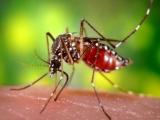The US Centers for Disease Control and Prevention today lifted Zika-related travel restrictions for Miami-Dade County because of a lack of recent Zika cases.
In related news, the mosquito that spreads Zika has been identified for the first time in Nevada.
No Miami cases for 45 days
"The Centers for Disease Control and Prevention (CDC) has updated guidance for people who travel to or live in Miami-Dade County to lift the Zika cautionary (yellow) area designation," the agency said in a news release today.
"There have been no new cases of local Zika virus transmission identified and no cases under investigation in Miami-Dade County for more than 45 days. Lifting the yellow area designation means that there are no longer any travel recommendations related to Zika virus for Miami-Dade County, Florida. "
In publishing related guidance for health departments and medical providers yesterday for areas where the cautionary designation has been lifted, the CDC said, "Although the level of risk of Zika virus transmission after a yellow area designation is lifted is unknown, it is likely to be low; sporadic cases may still occur. Healthcare providers should continue to evaluate pregnant women for potential exposure to Zika virus and symptoms of Zika virus disease.
"All women and men who live in or travel to an area that had a yellow area designation lifted should check the CDC website frequently for updates about Zika virus transmission."
The CDC added in today's news release, "Because we do not know the level of risk for local transmission of Zika virus in Miami-Dade County, women and men who live in or travel to this area should remain aware of any new reports of Zika virus transmission in their area and should consider following steps to prevent mosquito bites to reduce their risk for illnesses spread by mosquitoes, including Zika virus."
The agency added that pregnant women and their partners who live in or travel to this area who want to reduce the risk of Zika should abstain from sex during pregnancy or use condoms every time they have sex. "Because Zika virus can persist for months in semen, there may still be a continuing risk for sexual transmission, whether or not the partner had symptoms of Zika virus infection."
The agency added that women who are not pregnant and men who live in or traveled to this area before today should consider condom use or not having sex for at least 6 months for men and at least 8 weeks for women from the last day of their visit, if traveling, or from today if they live in the area.
Aedes aegypti in Nevada
County health officials in Nevada have detected Aedes aegypti, the mosquito species that can spread Zika and other viruses, for the first time in southern Nevada, the Las Vegas Review-Journal reported yesterday.
The mosquitoes were found in North Las Vegas, but experts were not overly concerned. "The viruses that it carries, we don't see very often in Southern Nevada," said Brian Labus, PhD, MPH, an infectious disease epidemiologist at the University of Nevada-Las Vegas.
Labus said it's possible the mosquitoes have been in the area previously in small numbers or traveled to the region, possibly in luggage or a car. Testing of the mosquitoes for Zika is under way. Ae aegypti mosquitoes have already been detected in neighboring Arizona and California but have not tested positive for Zika virus.
See also:
Jun 2 CDC news release
Jun 1 CDC guidance
Jun 1 Review-Journal story





















